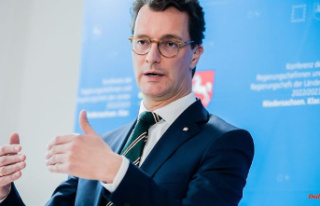Shortly before the deadline expires, the EU Parliament and member states agree on a new EU budget for next year. The current crises play a special role in this.
In the coming year, the EU wants to spend more money on the energy transition and on dealing with the consequences of the Ukraine war. Shortly before midnight, negotiators from the EU Parliament and the member states agreed that more than 186 billion euros can be planned for 2023, as Czech Deputy Finance Minister Jirí Georgiev announced. EU Budget Commissioner Johannes Hahn spoke of a "good result". "I'm grateful we got there in time," he said. If they hadn't reached an agreement before midnight, the EU Commission would have had to present a new budget proposal.
EU Parliament President Roberta Metsola welcomed the agreement. "Now is the time to boost our economy. Stay united," Metsola wrote on Twitter shortly after the agreement. The EU Parliament wrote in a statement that one billion euros more could be made available than originally planned by the EU Commission, among other things to deal with the consequences of the war in Ukraine and the further recovery from the Corona crisis.
For example, the pot of money for investments in cross-border transport and energy infrastructure was increased, and a total of 3 billion euros are now to be made available for this. Among other things, the Erasmus study exchange program was expanded to finance opportunities for young refugees, and 1.5 billion euros were planned for the fund for asylum, migration and integration. There should also be more money for health programs. The negotiators also agreed to earmark 14.7 billion euros for neighboring European countries and international development, particularly Ukraine and Moldova.
Specifically, the agreement provides that 186.6 billion euros can be planned for next year. The EU Parliament originally called for 187.3 billion euros to be made available next year. The EU states wanted to provide a little less - 183.95 billion. That was just below the proposal of EU budget commissioner Johannes Hahn for 185.6 billion euros. In order for the budget for 2023 to be implemented, the agreement still has to be confirmed in a plenary session of Parliament and by a Council of Ministers. However, this is considered a formality.












